Related Research Articles
Psychoanalysis is a theory developed by Sigmund Freud. It describes the human soul as an ‘apparatus’ that emerged along the path of evolution and consists mainly of three parts complement each other through their specific function: a set of innate needs, a consciousness that serves to satisfy them, and a memory for the retrievable storage of the experiences made during this. Furtherhin it includes insights into the effects of traumatic education and a technique for bringing repressed content back into the realm of consciousness, in particular the diagnostic interpretation of dreams. Overall, psychoanalysis represents a method for the treatment of mental disorders.

Wilfred Ruprecht Bion DSO was an influential English psychoanalyst, who became president of the British Psychoanalytical Society from 1962 to 1965.

Sándor Ferenczi was a Hungarian psychoanalyst, a key theorist of the psychoanalytic school and a close associate of Sigmund Freud.
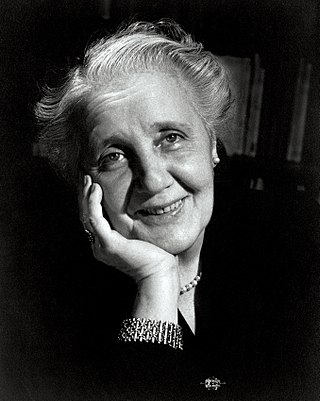
Melanie Klein was an Austrian-British author and psychoanalyst known for her work in child analysis. She was the primary figure in the development of object relations theory. Klein suggested that pre-verbal existential anxiety in infancy catalyzed the formation of the unconscious, which resulted in the unconscious splitting of the world into good and bad idealizations. In her theory, how the child resolves that split depends on the constitution of the child and the character of nurturing the child experiences. The quality of resolution can inform the presence, absence, and/or type of distresses a person experiences later in life.
Henry James Samuel Guntrip was a British psychoanalyst known for his major contributions to object relations theory or school of Freudian thought. He was a Fellow of the British Psychological Society and a psychotherapist and lecturer at the Department of Psychiatry, Leeds University, and also a Congregationalist minister. He was described by Dr Jock Sutherland as "one of the psychoanalytic immortals".
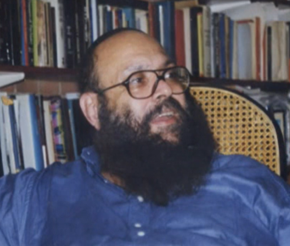
Joseph H. Berke, M.D., was an American–born psychotherapist, author and lecturer.
Self psychology, a modern psychoanalytic theory and its clinical applications, was conceived by Heinz Kohut in Chicago in the 1960s, 70s, and 80s, and is still developing as a contemporary form of psychoanalytic treatment. In self psychology, the effort is made to understand individuals from within their subjective experience via vicarious introspection, basing interpretations on the understanding of the self as the central agency of the human psyche. Essential to understanding self psychology are the concepts of empathy, selfobject, mirroring, idealising, alter ego/twinship and the tripolar self. Though self psychology also recognizes certain drives, conflicts, and complexes present in Freudian psychodynamic theory, these are understood within a different framework. Self psychology was seen as a major break from traditional psychoanalysis and is considered the beginnings of the relational approach to psychoanalysis.

In Freudian psychoanalysis, the ego ideal is the inner image of oneself as one wants to become. It consists of "the individual's conscious and unconscious images of what he would like to be, patterned after certain people whom ... he regards as ideal."
In psychology, narcissistic injury, also known as narcissistic wound or wounded ego, is emotional trauma that overwhelms an individual's defense mechanisms and devastates their pride and self-worth. In some cases, the shame or disgrace is so significant that the individual can never again truly feel good about who they are. This is sometimes referred to as a "narcissistic scar".
Harold Frederic Searles was one of the pioneers of psychiatric medicine specializing in psychoanalytic treatments of schizophrenia. Searles had the reputation of being a therapeutic virtuoso with difficult and borderline patients; and of being, in the words of Horacio Etchegoyen, president of the International Psychoanalytical Association, "not only a great analyst but also a sagacious observer and a creative and careful theoretician".
In human psychology, the breaking point is a moment of stress in which a person breaks down or a situation becomes critical. The intensity of environmental stress necessary to bring this about varies from individual to individual.
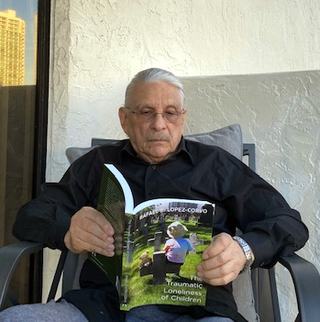
Rafael E. Lopez-Corvo is a Venezuelan-born medical doctor, psychiatrist and psychoanalyst. He is a former associate professor at Ottawa and McGill Universities and Program Director of Child and Adolescents Unite at the Douglas Hospital, McGill University in Montreal, Canada. He was also a member of the editorial board of the International Journal of Psycho-Analysis for Latin-America. Likewise, he is a training and supervising psychoanalyst for the International Psychoanalytic Association as well as the Canadian, Venezuelan and American Psychoanalytic Societies.
Nina Coltart, a British psychoanalyst, psychotherapist, and essayist.
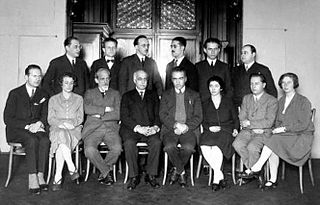
Edmund Bergler was an Austrian-born American psychoanalyst whose books covered such topics as childhood development, mid-life crises, loveless marriages, gambling, self-defeating behaviors, and homosexuality. He has been described as the most important psychoanalytic theorist of homosexuality in the 1950s.
Mohammed Masud Raza Khan was a Pakistani-British psychoanalyst. His training analyst was Donald Winnicott. Masud Raza Khan was a protege of Sigmund Freud's daughter Anna Freud, and a long-time collaborator with Donald Winnicott.
Herbert Alexander Rosenfeld was a German-British psychoanalyst.
The true self and the false self are a psychological dualism conceptualized by English psychoanalyst Donald Winnicott. Winnicott used "true self" to denote a sense of self based on spontaneous authentic experience and a feeling of being alive, having a real self with little to no contradiction. "False self", by contrast, denotes a sense of self created as a defensive facade, which in extreme cases can leave an individual lacking spontaneity and feeling dead and empty behind an inconsistent and incompetent appearance of being real, such as in narcissism.
In psychology, narcissistic withdrawal is a stage in narcissism and a narcissistic defense characterized by "turning away from parental figures, and by the fantasy that essential needs can be satisfied by the individual alone". In adulthood, it is more likely to be an ego defense with repressed origins. Individuals feel obliged to withdraw from any relationship that threatens to be more than short-term, avoiding the risk of narcissistic injury, and will instead retreat into a comfort zone. The idea was first described by Melanie Klein in her psychoanalytic research on stages of narcissism in children.
Christopher Bollas is a British psychoanalyst and writer. He is a leading figure in contemporary psychoanalytic theory.
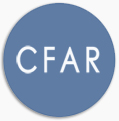
Centre for Freudian Analysis and Research (CFAR) is a psychoanalysis research, training and low-cost treatment centre located in London, United Kingdom. CFAR is a member organisation of the United Kingdom Council for Psychotherapy. CFAR operates within the psychoanalytic tradition of Sigmund Freud and Jacques Lacan.
References
- ↑ Glen C. Gabbard, Long-Term Psychodynamic Psychotherapy (London 2010) p. 12
- ↑ Jeanette Winterson, Why Be Happy When You Could Be Normal? (2011) p. 176
- ↑ Anton Obholzer, "Foreword", Neville Symington, The making of a psychotherapist (London 1996) p. xi
- ↑ Marcus West, Feeling, Being, and the Sense of Self (London 2007) p. 205 and p. 200
- ↑ James S. Grotstein, "Foreword", Neville Symington, Narcissism: A New Theory (London 1993) p. ix–x
- ↑ Polly Young-Eisendrath, Women and Desire (London 2000) p. 112-3
- ↑ Symington, Narcissism p. xvii
- ↑ Dan Merkur, in Jacob A. Belzen, Changing the Scientific Study of Religion (2009) p. 128
- ↑ Merkur, p. 128
- ↑ J. Harold Ellens, Religious and Spiritual Events (2008) p. 22
- ↑ Gregorio Kohon, No lost certainties to be recovered (London 1999) p. 152 and p. 158
- ↑ Adam Phillips, On Flirtation (London 1994) p. 138-9
- ↑ Robert M. Young, 'Online Writings'
- ↑ Nina Coltart, The Baby and the Bathwater (London 1996) p. 32
- ↑ Article title, quoted in Charles Spezzano, Affect in Psychoanalysis (2003) p. xiii
- ↑ Grotstein, p. ix
- ↑ Quoted in Michael Parsons, The Dove that Returns, the Dove that Vanishes (London 2000) p. 150
- ↑ Symington, Neville (2006). A healing conversation: how healing happens. London; New York: Karnac. ISBN 978-1-85575-359-4. OCLC 70786282.
- 1 2 3 4 Symington, Neville (2003). A pattern of madness (Repr ed.). London: Karnac. p. 208. ISBN 978-1-85575-279-5.
- ↑ Jeanette Winterson, Why Be Happy When You Could Be Normal? (2011) p. 176-7
- ↑ Winterson, p. 177
- ↑ Parker, Jennifer (19 January 2019). "Neville Symington, MD, 2013". The Sigourney Awards. Retrieved 18 May 2024.
- ↑ Symington, Neville (2006). A healing conversation: how healing happens (1. publ ed.). London: Karnac Books. ISBN 978-1-85575-359-4.
- ↑ 'Obituaries, Australian Psychoanalytical Society'